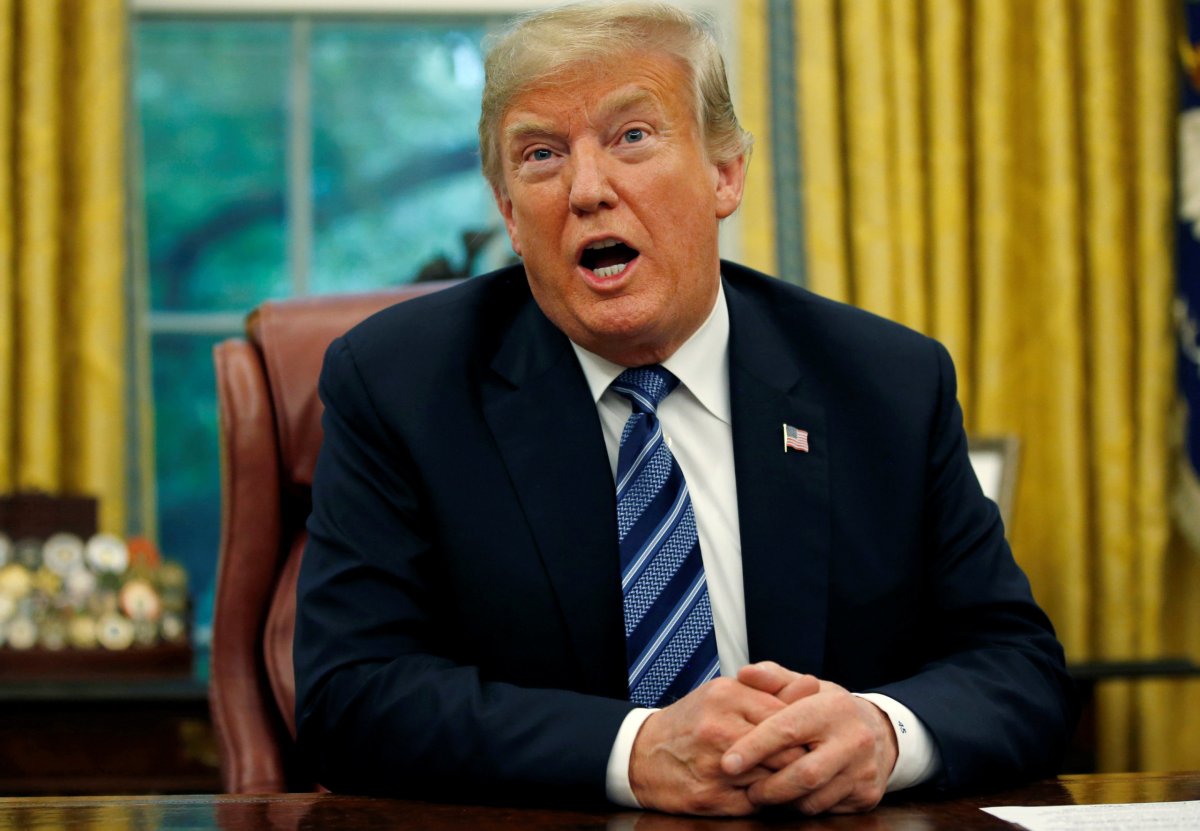By Jeff Mason and Steve Holland
WASHINGTON (Reuters) – Under fire over his handling of Russian election meddling, U.S. President Donald Trump signed an executive order on Wednesday meant to make U.S. elections more secure by slapping sanctions on any foreigners trying to interfere in the political process.
The order, signed by Trump only eight weeks before congressional elections on Nov. 6, met immediate criticism from both Republican and Democratic lawmakers as too little, too late.
Sanctions could include freezing assets, restricting foreign exchange transactions, limiting access to U.S. financial institutions, and prohibiting U.S. citizens from investing in companies involved, national security adviser John Bolton told reporters.
Bolton said sanctions could be imposed during or after an election, based on evidence gathered. The State and Treasury departments would decide on additional sanctions to recommend and impose, he said.
U.S. intelligence agencies concluded that entities backed by the Kremlin had sought to boost Republican Trump’s chances of winning the White House in the 2016 election against his Democratic opponent Hillary Clinton. But Trump in July publicly accepted Russian President Vladimir Putin’s denials at their joint press conference in Helsinki after a summit meeting.
Special Counsel Robert Mueller and congressional panels are investigating Russian interference, which Moscow denies. Mueller is also looking into any coordination between the Trump campaign and Russian officials. Trump dismisses the investigations as a political witch hunt.
“Today’s announcement by the administration recognizes the threat, but does not go far enough to address it,” said Republican Senator Marco Rubio and Democratic Senator Chris Van Hollen in a joint statement.
The order represents an effort by the administration to look tough on election security before the voting in November, which will decide if Trump’s Republicans hold their majorities in the U.S. House of Representatives and the Senate.
Bolton said criticism of the president’s comments in Helsinki and in numerous tweets on the long-simmering issue played “zero” role in driving the issuance of the executive order.
“The president has said repeatedly that he is determined that there not be foreign interference in our political process,” Bolton said on a conference call.
The order would direct intelligence agencies to assess whether any people or entities interfered. The information would be provided to the Justice and Homeland Security departments, and then based on their assessment of the validity and impact, trigger automatic sanctions, U.S. Director of National Intelligence Dan Coats said.
Intelligence agencies would have 45 days to make an assessment. Then the two departments would have 45 days to determine whether action is required, Coats told reporters.
Bolton said the order was necessary to ensure a formal process and authorization for sanctions. He said he was in talks with lawmakers about possible legislation.
Senator Mark Warner, a Democrat who is vice chairman of the intelligence committee, said, “Unfortunately, President Trump demonstrated in Helsinki and elsewhere that he simply cannot be counted upon to stand up to Putin when it matters.”
“While the administration has yet to share the full text, an executive order that inevitably leaves the president broad discretion to decide whether to impose tough sanctions against those who attack our democracy is insufficient,” Warner said.
DNI Coats said the measure was being put in place as part of government efforts to report on any suspicious activity between now and November’s elections and to do a full assessment after the election that would trigger sanctions if necessary.
U.S. lawmakers have introduced various pieces of Russia-related legislation urging punishments for election meddling.
Congress passed a Russia sanctions bill more than a year ago. Some lawmakers have chafed at what they saw as the administration’s reluctance to implement it.
Trump signed the bill into law only after Congress passed it with huge majorities. Acting on the law, the Treasury Department has imposed sanctions against 24 Russians, striking at allies of Putin.
(Reporting by Jeff Mason and Steve Holland; Additional reporting by Christopher Bing and Patricia Zengerle; Editing by Kevin Drawbaugh and Grant McCool)



















